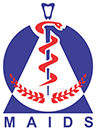Filter
Ans. Oral cancer most often strikes adults over the age of 40 and affects twice as many men than women. Those individuals who use any form of tobacco products, especially combined with the use of alcohol, are at increased risk for oral cancer. However, more than 25 percent of oral cancers occur in non-smokers with no other risk factors.
Ans. Oral cancer can be prevented by eliminating risk factors such as tobacco product use and excessive alcohol consumption. Using a lop balm that contains sunscreen also will reduce the risk of lip cancer. Additionally, studies indicate that eating fruits and vegetables as part of low-fat, high-fiber diet may reduce the risk of cancer.
Ans. Symptoms of oral cancer include:
- Sores in the mouth or on lips that do not heal
- A lump or discolored patches on the inside of the mouth
- Difficulty chewing, swallowing, or moving the jaw and tongue
- Swelling of the jaw that changes the way teeth fit together or how dentures fit
- Pain or numbness in parts of the mouth
Ans. Dentists recommend you check your mouth monthly. If you notice any of the symptoms listed above, contact your dentist immediately. Sometimes an oral spot or sore may be difficult to see without to see without the help of a dentist. Your dentist will examine your mouth during your six-months check-up. If your dentist identifies an area of concern, he or she can test it to determine whether or not the area is cancerous.
Ans. Anyone can be affected by mouth cancer, whether they have their own teeth or not. Mouth cancers are more common in people over 40, particularly men. However, research has shown that mouth cancer is becoming more common in younger patients and in women. There are , on average, over 4,300 new cases of mouth cancer diagnosed in the UK each year. The number of new cases of mouth cancer is on the increase.
Ans. Yes. many of these deaths could be prevented if the cancer was caught early enough. As it is, people with mouth cancer are more likely to die than those having cervical cancer or melanoma skin cancer.
Ans. Most cases of mouth cancer are linked to tobacco and alcohol. Cigarette, cigar and pipe smoking are the main forms of tobacco use in the U.K. However, the traditional ethnic habits of chewing tobacco, betel quid , gutkha and paan are particularly dangerous. Alcohol increases the risk of mouth cancer, and if tobacco and alcohol are consumed together the risk is even greater. Over-exposure to sunlight can also increase the risk of cancer of the lips.
Ans. Mouth cancer can appear in different forms and can affect all parts of the mouth, tongue and lips. Mouth cancer can appear as a painless mouth ulcer that does not heal normally. A white or red patch in the mouth can also develop into a cancer. It is important to visit your dentist if these areas do not heal within two weeks.
Ans. Mouthy cancer can often be spotted in its early stages by your dentist during a thorough mouth examination. If mouth cancer is recognized early, then the chances of a cure are good. Many people with mouth cancer go the their dentist or doctor too late.
Ans. The dentist examines the inside of your mouth and your tongue with the help of a small mirror. Remember, your dentist is able to see parts of your mouth that you cannot see easily yourself.
Ans. If your dentist finds something unusual or abnormal they will refer you to a consultant at the local hospital, who will carry out a thorough examination or your mouth and throat. A small sample of the cells may be gathered from the area (a biopsy), and these cell will be examined under the microscope to see what is wrong.
Ans. If the cells are cancerous, more tests will be carried our. These may include overall health checks, blood tests, x-rays or scans. These tests will decide what course of treatment is needed.
Ans. If mouth cancer is spotted early, the chances of a complete cure are good, and the smaller the area or ulcer the better the chance of a cure. However, too many people come forward too late, because they do not visit their dentist for regular examinations.
- Ans. It is important to visit your dentist at least once a year, even if you wear dentures. This is especially important if you smoke and drink alcohol.
- When brushing your teeth, look out for any changes in your mouthy, and report any red or white patches, or ulcers, that have not cleared up within two weeks.
- When exposed to the sun, be sure to use a good protective sun cream, and put the correct type of barrier cream on your lips.
- A good diet, rich in vitamins A, C and E, provides protection against the development of mouth cancer. Plenty of fruit and vegetables help the body to protect itself, in general, from most cancers.
- Cut down on your smoking and drinking.


 Maulana Azad Institute of Dental Sciences
Maulana Azad Institute of Dental Sciences


